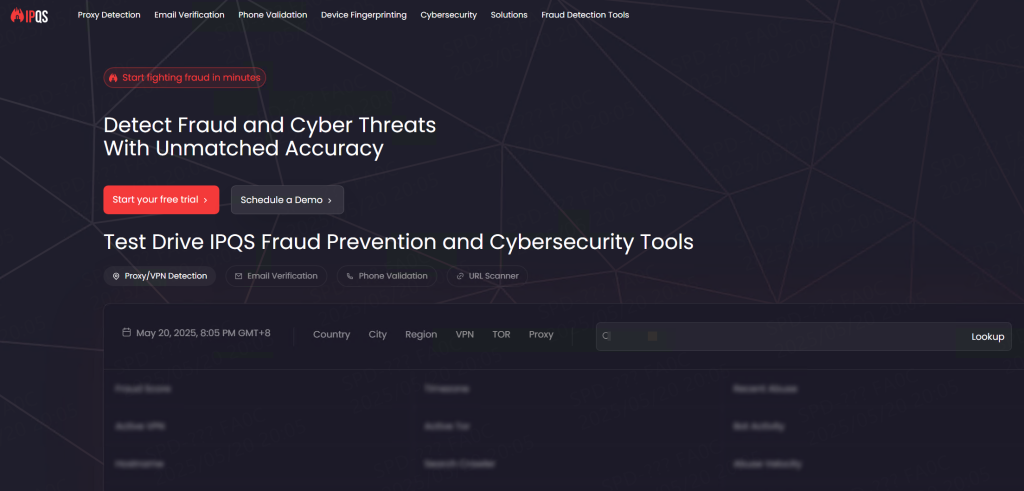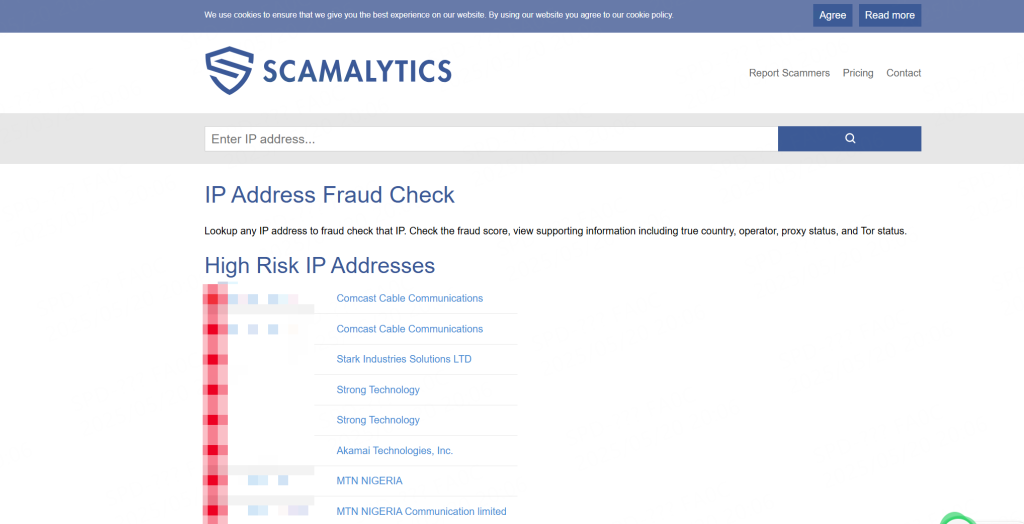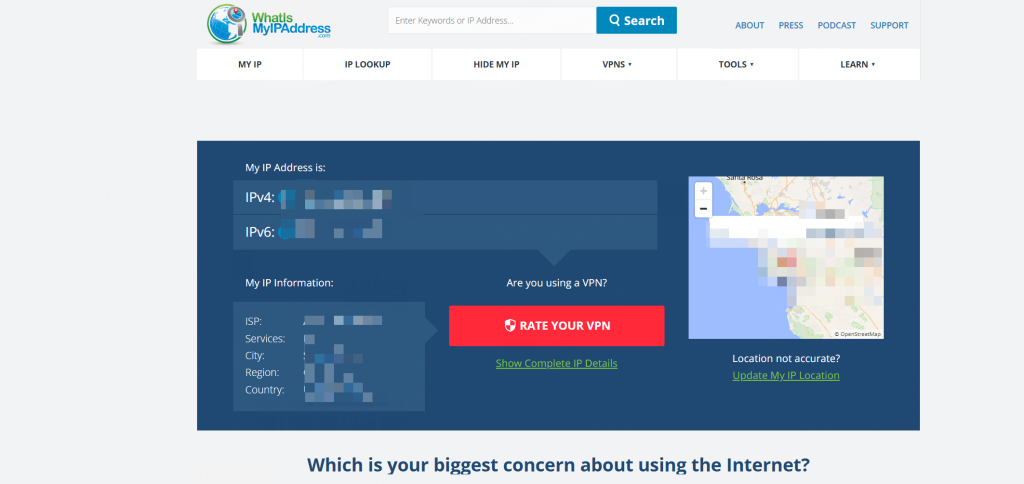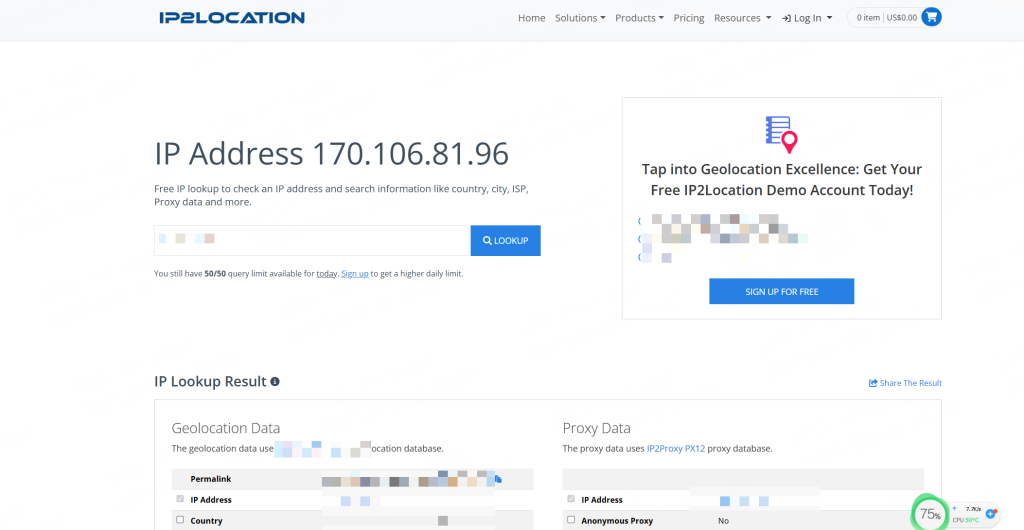
With proxy services widely used in data scraping, ad verification, account registration, and content unblocking, choosing the right type of proxy has become increasingly important. Residential proxies, known for their real household network identity, are often considered safer and more discreet. However, with varying quality across providers, how can you tell if the IPs you purchased are truly residential? This article will break it down for you.
To determine whether an IP is a residential proxy, the key is whether the IP is owned by an Internet Service Provider (ISP) and allocated to a household or individual user. Here are several initial methods to check:
IP Ownership Lookup: Check the IP’s registered ISP and location. If the ISP’s registered address is in a residential area, the IP is likely residential. Use IP lookup tools to examine ASN (Autonomous System Number) details to see if the IP belongs to ISPs like Comcast, AT&T, or China Telecom.
Port Scan: Residential IPs usually only have basic ports open, while commercial servers tend to have more open for business use. Scanning open ports can help identify whether the IP is residential.
IP Geolocation Tools: Observe whether the IP’s geographic location aligns with typical residential usage (i.e., not from data centers or for commercial use). Many free and paid tools offer geolocation services that can reveal the IP’s provider, location, and user type.
Site Access Test: Check whether the IP can access commercial websites. If the IP appears on blacklists frequently or gets blocked often, it may not be a residential or may be a shared IP.
Here are several reliable IP-checking platforms to determine whether an IP is residential and assess its overall quality:
IPQualityScore: https://www.ipqualityscore.com/

Scamalytics: https://scamalytics.com/ip

WhatIsMyIPAddress: https://whatismyipaddress.com/

IP2Location: https://www.ip2location.com/demo

These platforms can provide insights such as:
Fraud Score: Indicates the likelihood that the IP is associated with suspicious or malicious behavior.
Anonymity Type: Identifies if the IP is a high-anonymity proxy, transparent proxy, or regular user.
ISP & ASN Info: Shows the ISP and ASN to determine if it’s a residential network.
Geolocation: Provides country, city, and region data.
Blacklist Status: Indicates if the IP is listed in spam or threat databases.
Mobile Connection: Helps identify if the IP is from a mobile network, which can affect reliability.
Abuse History: Shows recent misuse or suspicious activity linked to the IP.
Combining these factors, IPQualityScore can offer a comprehensive evaluation of any IP, helping determine whether it belongs to a real residential user and if it’s suitable for data scraping, ad campaigns, account creation, or other sensitive tasks. It’s an invaluable tool for individuals and businesses using proxy services.
These are often confused, so let’s compare:
| Feature | Native IP (ISP IP) | Residential IP |
| Source | Assigned by ISP but hosted by proxy provider | Spread across real user devices, often via P2P |
| Stability | High; ideal for long-term use | Medium; often changes dynamically |
| Anonymity | Strong; identifiable as real network | Stronger; mimics household user behavior |
| Use Cases | Social media ops, e-commerce account mgmt | Data scraping, ad verification, content access |
| Control | Higher; can be static | Lower; typically from dynamic pools |
Both originate from real ISP networks rather than data centers, but residential IPs are better at evading blocks and masking identity due to their “consumer device” nature.
Cliproxy is a trusted provider specializing in high-quality residential proxies, offering the following advantages:
High Anonymity: All IPs come from real household networks and are hard to detect as proxies.
Global Coverage: Supports 195+ countries and regions, ideal for international expansion.
Stable & Reliable: Intelligent IP rotation ensures high request stability and task success rates.
Flexible Pricing: Packages based on traffic, bandwidth, and ports to suit various business needs.
Compliance & Security: Adheres to data privacy regulations for safe and compliant use.
Whether you’re in cross-border e-commerce, ad marketing, AI training, or data scraping, Cliproxy offers a trustworthy proxy solution.
When purchasing proxy IPs, vendor claims alone aren’t enough. Using professional tools to verify whether your IPs are truly residential is the first step to success and avoiding wasted resources. Understanding the difference between residential and native IPs helps you make a smarter choice for your specific needs. If you’re looking for a stable, high-quality residential proxy provider, Cliproxy is certainly worth considering.


